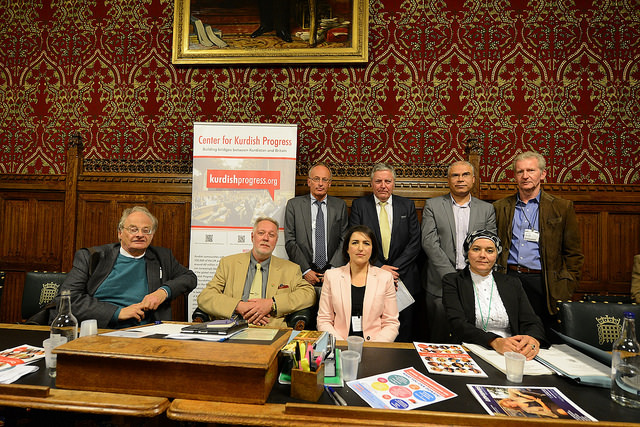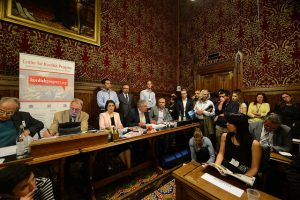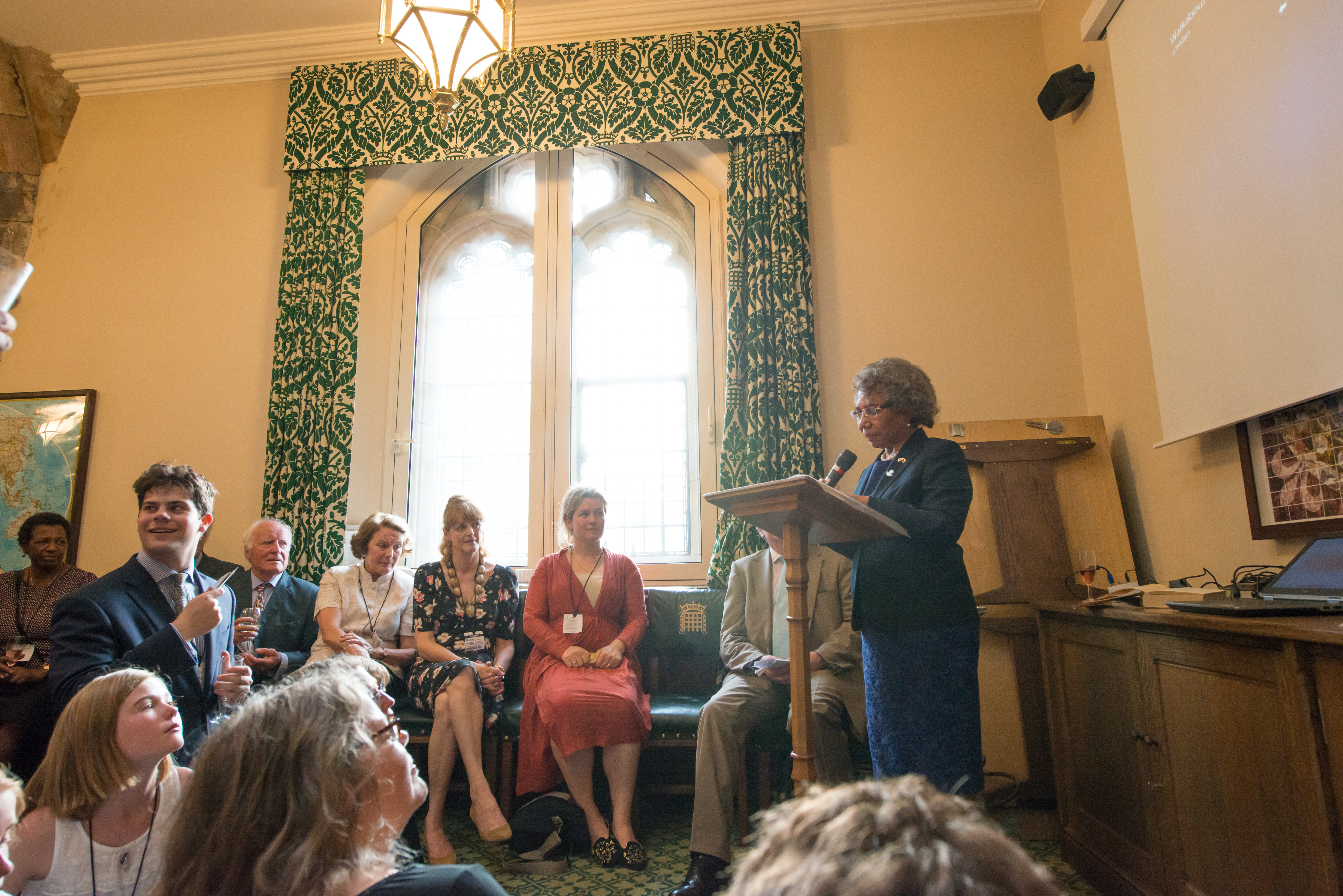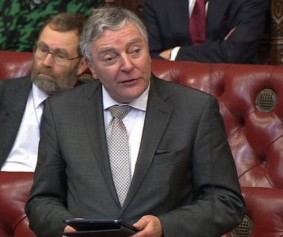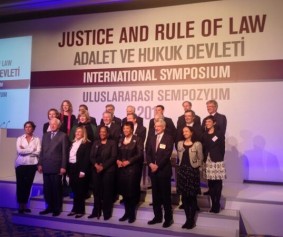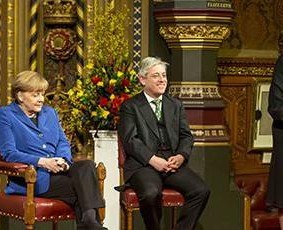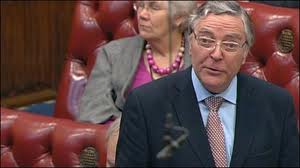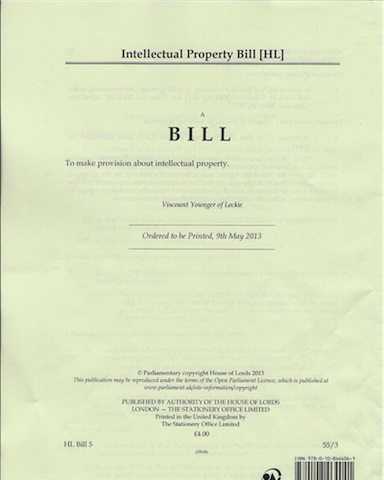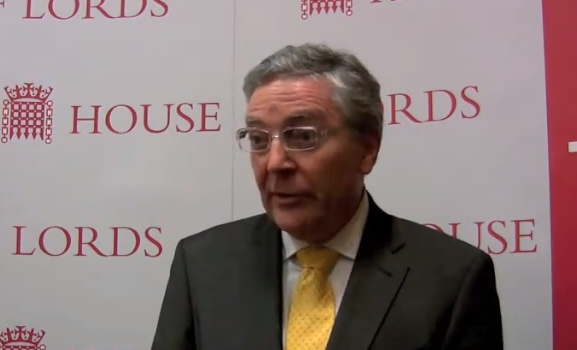Lord C-J debates Iraq Crisis
Recently the London based Centre for Kurdish Progress in partnership with the Centre for Turkey Studies (CEFTUS) organised a debate on the crisis in Iraq at the House of Commons.
Over 200 hundred people attended the event. Keynote speakers included Kurdistan Regional Government High Representative to the UK Bayan Sami Abdul Rahman, Former Secretary of State for Defence Dr Liam Fox Conservative MP for North Somerset, UK Representative of the Democratic Union Party (PYD) Dr Alan Semo, Lord Maurice Glasman, Mr Bill Park of Kings’ College, author and journalist Mr Patrick Cockburn, author and journalist and myself.
Director of the APPG for the Kurdistan Region of Iraq, Mr Gary Kent chaired the debate.
This is what I said
Treat Kurdistan as an Equal
I’ve been a regular visitor to Kurdistan over the past 10 years and I’ve developed a huge admiration for the way that in the face of all the odds: genocide, persecution and hardship, the Kurds have built a democratic, plural and increasingly prosperous society in the very midst of some very dysfunctional neighbours.
We need to recognize the vital importance to us of the Kurds as allies
They are a bastion of civilisation, democracy and pro-western sentiment in the Middle East.
They are self critical too. What other Middle East government would have commissioned a frank Report by the Economist Intelligence Unit and follow up its recommendations.
It was published before June but even then the contrast with conditions in the rest of Iraq couldn't be starker.
They highlighted some key strengths but the key weakness is the relationship with the Bagdad Government.
That was before the change of government and the installation of a new Prime Minister but even though we nearly have a full slate of Ministers I am not overly optimistic about the ability of the parties to come an agreement on the issues which have been outstanding for many years despite many promises made: oil and gas issues;disputed territories; resources for the peshmerga and so on.
Let alone the backlog of the central government's budget contribution to the KRG.
Especially if Mr Shahristani remains a force in government.
It may well fall apart in three months time.
All this means that as the UK or the EU we can't keep trying to deal exclusively through the Bagdad Government, although of course any leverage brought to bear by them is welcome.
The KRG should to be treated as autonomous government at the very least and their aspirations to be independent as legitimate.
From here on out we need to deal direct and do whatever it takes to support them.
Historically this has not been the case whether dealing with consulate services, visas, business support, despite the fact that Iraqi Kurdistan has been by far the most promising region economically, security wise, and on every other count there has been a reluctance to recognize this.
My view is that we should have had closer relations with the KRG some time ago, going beyond UKTI type activity.
The need for direct relations at a senior level is doubly important of course today.
We have a serious situation comparable with Bosnia or Darfur or the Anfall against the Kurds by Saddam Hussein.
We are seeing Mass Killings, Rape and Abduction. Psychopathic behaviour by ISIS brigades.
We need to be clear that this constitutes Genocide.
The recent Amnesty Report "Ethnic Cleansing on a historic scale" did not used the word but that's what it is.
As the Kurdish Genocide Taskforce is calling for these acts should be investigated by the UN and referred to the ICC.
The implications are far reaching.
Unless are stopped are stopped disaster will ensue not just regionally but globally.
IDSIS recognizes no borders but the Kurds have 1000 kms to defend.
The current refugee situation alone is intolerable. 1. 4 million on top of a population of 5 million.
Kurdistan needs huge support in tackling the problem. Not from the UN alone. They need more humanitarian assistance and will need development support if their economy starts to suffer from the conflict.
As regards the military aspect I am very heartened by the PM's announcement that we will supply British Arms to the Kurds
We have now have a consensus that we must arm the Kurdish peshmerga and give them whatever resource they need to fight effectively. Not just arms but intelligence, logistics, night vision equipment and so on.
If there is any remaining public doubt it will soon be dispelled.
It is essential we play our part in air strikes.
But in all this we must treat the Kurdish people and the KRG as an essential allies in implementing a strategy to defeat or at least minimize the threat from ISIS.
That means treating them as equals from here on out. As should other members of the EU and the Regional powers such as Turkey, Iran and Saudi Arabia.
Celebrating the Moyne/Broughton Expeditions of 1934-36
Project Walkabout held a reception in the Commonwealth Parliamentary Association room next to Westminster Hall to celebrate the expeditions to the South Pacific undertaken by Walter Guinness, Lord Moyne and by my great Aunt Vera Delves Broughton.
Walter wrote about them in the book Walkabout and it was illustrated by Vera's photographs.
Project Walkabout is a charity set up by the grandchildren of Walter and Vera , Diana Moores and Lavinia Verney respectively, with the objective of preserving the film taken at that time by Arthur, Viscount Elvedon, another member of the Guinness family.
This is their website. http://projectwalkaboutdotorg.wordpress.com/lady-broughton/
The reception featured photographs taken by Vera and clips of some of the restored footage courtesy of Susanne Hammacher of the Royal Anthropological Institute.One of the aims of the reception was to raise funds to restore the remaining footage (another 5 reels on top of the 2 being currently restored).
Professor Nick Stanley of the British Museum who is an expert on aspects of PNG culture spoke as did HE Winnie Kiap the PNG High Commissioner. The evening was rounded off by Richard Graham MP, until recently the PPS to Hugo Swire the Minister for the Commonwealth.
I presented a copy of Walkabout to the High Commissioner signed by all the descendants of Walter and Vera present.
Peers Debate the WWW on its 25th Anniversary
Martha Lane Fox until recently the Government's UK Digital Champion initiated a wide ranging debate that has been widely reported.
http://diginomica.com/2014/01/17/kind-world-wide-web-want/
http://www.bbc.co.uk/news/uk-politics-25757175
Here is my contribution which focuses on the ethical standards we need in the future.
I too congratulate B Lane Fox not only for opening this debate in such an inspiring way but in so successfully carrying out her role as the Government’s UK Digital Champion
The use of the internet in the UK climbs inexorably.
We celebrated the universality of the web at the Olympic opening Ceremony with Sir Tim Berners Lee tweeting "This is for everyone", which was instantly spelled out in lights attached to the tablets on the chairs of the 80,000 people in the audience.
And I absolutely share the N Baroness's concern to ensure that no one is excluded.
Having come to the Web myself some 20 years ago standing here with my iPad with all its apps I still find the speed of developments since I first used the Netscape browser quite extraordinary.
Sir Tim and the early pioneers of the web deserve huge recognition for their setting of the open and neutral standards which ensured the growth of the WWW.
The fact is however that the development of ethical safeguards and standards now needs to evolve at the same pace as the range of applications.
The web is not some kind of foreign country where ordinary rules of conduct don’t apply. We need an alignment of online and offline rights and protections.
Freedom of expression is a vital principal that needs to upheld both online and offline but this needs to be balanced with rights of privacy.
One Commentator has said that Silicone Valley appears to regard privacy as a “marketable commodity”. Government through through what we now know about its access to the PRISM programme appears to have a similar view. It is vital that we have maximum control over our own metadata.
The UK’s ranking in the the WWW Foundation's Web Index is reduced by concerns over its attitude to privacy rights. I hope that Communications Data bill will not Essay Writing Services resurface in its previous form. So I welcome the campaign - the Web We Want and the statement of 19th December coordinated by the Foundation.
I also welcome the recognition by the PM and the S of S for CMS of the need for adequate filtering to protect young people from online abuse But as was discussed in this House only recently with Lady Howe’s online Safety Bill shouldn’t we be making filtering compulsory? Is it enough simply to leave it up to parents to make the choice about appropriate safety features?
There is concern about the content of online music videos highlighted among others by Reg Bailey in his review into the Commercialisation and Sexualisation of Children
The currently proposed amendment to the Video Recordings Act designed to ensure that content which is presently exempt from classification, but unsuitable and potentially harmful for younger children, will in future require BBFC classification but it only covers hard copy video works.
Shouldn’t online music videos containing sexual or explicit content should be subject to the same age ratings and regulations?
As my Rt hon friend the DPM has advocated we do need better guidance for young people too about the dangers of online pornography
I can also ask my perennial question too my Lords: When can we expect full implementation of the Digital Economy Act 2010 or at the very least an alternative effective remedy to combat online copyright piracy?
Lord C-J Debates freedom of speech in Turkey
I recently attended a major conference on the Rule of Law in Istanbul alongside a number of other senior British Parliamentarians and representatives and a very broad cross section of NGO's, judges and others concerned with human and civil rights from a wide variety of jurisdictions. The Rule of Law and Freedom of Expression are crucial issues in Turkey today and are under threat. Here is what I said.
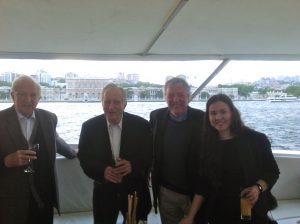
Media and Internet in a Democratic State
Freedom of the media is a vital pillar of the rule of law and its protection is related strongly to the independence of the judiciary as we heard this morning. It is also a very topical subject on which to end this superb symposium and very closely related to the health of democracies both old and new.
The 20th century philosopher Alexander Meiklejohn put it well when he that stated democracy cannot not be true to its essential ideal if those in power are able to manipulate the electorate by withholding information and stifling criticism.
Today’s panel session is very timely. Back in 1993 May 3rd was designated by UNESCO as World Press Freedom day.
It is a day to celebrate the fundamental principles of press freedom; to evaluate press freedom around the world, to defend the media from attacks on their independence and to pay tribute to journalists who have lost their lives in the exercise of their profession.
In this month of May in particular therefore we should remember that it is often journalists who pay the price for protecting freedom of expression
In the words of the former SundayTimes editor Harold Evans “The price of truth has gone up grievously,” commenting on the terrible annual roll call of journalists who die whilst carrying out their profession.
At the beginning of every year, the International Federation of Journalists (IFJ) publishes a report on the journalists killed in this previous year. 105 journalists and news media personnel were killed during 2013.
In that context we should remember Hrant Dink the editor of Agos who was killed in Istanbul 7 years ago.
Although there are some broad principles enunciated in Article 19 of the International Covenant on Civil and Political Rights( ICCPR) article 10 of the ECHR and the American First Amendment, in my own country Britain much of the development of traditional freedoms are judge made and depend on the decisions of the courts made at different times in response to different events.
It has often taken stubborn and courageous individuals to taken action to defend these principles and to have secured freedom of speech and of the press.
John Milton the famous poet, author of Paradise Lost and religious puritan, in Areopagitica, a famous defence of free speech and against the licensing of publication and censorship and was published in 1644 without a license, made an impassioned plea for freedom of expression stating:
"Give me the liberty to know, to utter, and to argue freely according to conscience, above all liberties."
In my former political party the Liberal Party, the predecessor to the Liberal Democrats, a copy of Areopagitica was ceremonially handed to each incoming President to remind us all of the importance of free speech.
Milton was however unsuccessful in persuading Oliver Cromwell’s government to abolish licensing and censorship.
Some say in fact that our current freedoms in Britain arose by accident when the Licensing of the Press Act 1662, which was time limited to two years, was by an oversight not renewed by Parliament in 1679.
This led temporarily to what has been called “an explosion of news print”.
The Act was in fact renewed a few years later but the benefits of a free press had clearly been shown and in 1695 the Licensing Act was repealed- the last time as our media have recently been reminding us-Britain had statutory regulation of the press.
It was to transform Britain into a nation of news lovers and the liberty of the press rapidly became a cornerstone of British democracy.
As if to remind us in the British Parliament of the importance of the freedom of the press there is currently an exhibition taking place in Parliament featuring portraits and caricatures of one of the most famous defenders of press freedom in Britain, John Wilkes.
John Wilkes was a member of the British parliament who turned to journalism. In 1762 he launched a newspaper, the 'North Briton', aimed at countering the policy of the government headed by the Scottish Earl of Bute to make peace with France.
Through his writing he successfully forced The Prime Minister's resignation but he went too far and criticized the Monarch, King George III directly. The result was the issuing of a warrant seeking his arrest for the publication of what was called a seditious libel.
Wilkes successfully claimed privilege as an MP to secure his release but soon was expelled from the House of Commons and was forced to go into exile, remaining abroad for the next five years.
During this period he once again faced charges for seditious libel; he was sentenced to 22 months in prison. But by this time he was a national celebrity. He successfully re-entered politics even becoming Lord Mayor of the city of London !
Yet whilst we can celebrate the historic breakthroughs of the past very few countries including the UK nowadays are immune from criticism.
The annual index of media freedom, Freedom of Press, is published by the US-based Freedom House, an NGO established in 1941 that has been ranking countries worldwide since 1980 in relation to democracy, human rights and press freedom
Britain in the 2014 index has slipped down their global rankings as a result of the UK government's actions in relation to the Guardian newspaper over its reporting of whistleblower Edward Snowden's surveillance disclosures, with threats of legal action, the destruction of computer hard drives and the nine-hour detention of David Miranda, the partner of journalist Glenn Greenwald, at Heathrow en route from Berlin to his home in Rio de Janeiro.
Generally however Freedom House say that said press freedom worldwide has fallen to its lowest level for over a decade. It partly blames regressive steps in countries such as Egypt, Libya, Jordan, Turkey and Ukraine, as well as the actions taken against journalists reporting on national security issues in both the US and UK.
Sadly a large essaywritingstar.com change occurred in Turkey’s ranking, whose classification has moved from Partly Free to Not Free. This reinforces the Pen International Report on restrictions on freedom of expression following the Gezi Park protests.
It seems that constitutional guarantees of freedom of the press and expression are only partially upheld in practice, undermined by restrictive provisions in the criminal code and the Anti-Terrorism Act.
According to the committee to Protect Journalists Turkey remains the world’s leading jailer of journalists in 2013, with 40 behind bars as of December 1,
The fall in the rankings was of course before the recent blocking of YouTube and Twitter, the law increasing the powers of the National Intelligence Agency- the MIT law- and new internet censorship measures.
According to Reporters Without Borders, more than a third of the world's people live in countries where there is no press freedom. These are countries where there is no system of democracy or where there are serious deficiencies in the democratic process.
A free press is a real problem a for most non-democratic systems of government since, in the modern age, strict control of access to information is critical to the existence of most non-democratic governments and their associated control systems and security apparatus.
Turkey IS a democracy but brave contemporary Turkish newspaper editors and journalists such Ahmet Şıkhave (who has won the 2014 UNESCO Guillermo Cano World Press Freedom Prize) have had to play an important role in protecting the principles of press freedom.
It may appear that there is a press freedom gold standard in some countries but the truth is that even in mature democracies there is a constant struggle between different actors in public life, between the media and politicians and officials and business too, who often may wish for commercial and reputational reasons to conceal their activities. All this means that inevitably there is an element of subjectivity in what is accepted as necessary freedom of expression at any one time.
John Locke the famous late 17th Century British philosopher expressed the principle of valid limitations to free speech when he made the distinction between the concepts Liberty on the one hand and Licence on the other, essentially the abuse of liberty to harm others.
John Stuart Mill the influential 19th British philosopher in “On Liberty” published in 1859 also acknowledged the need for limits on free speech in certain circumstances.
But for Mill, the only instance in which speech can be justifiably suppressed is in order to prevent harm from a clear and direct threat. Neither economic or moral implications, nor the speakers own well-being would justify suppression of free speech.
As he said.
"the only purpose for which power can be rightfully exercised over any member of a civilised community, against his will, is to prevent harm to others."
More pithy was US Judge Oliver Wendell Holmes who made the memorable observation that freedom of speech should not include the freedom to shout ‘Fire!’ in a crowded theatre.
Of course nowadays we have much stronger regard for certain rights such as the right of privacy, and governments assert national security when they can so there is a continuous debate about what limits can legitimately be placed on freedom of expression which go beyond those stated by Mill.
Article 19 of the ICCPR for example states that
"everyone shall have the right to hold opinions without interference" and "everyone shall have the right to freedom of expression; this right shall include freedom to seek, receive and impart information and ideas of all kinds, regardless of frontiers, either orally, in writing or in print, in the form of art, or through any other media of his choice".
But it goes on to say that the exercise of these rights carries "special duties and responsibilities" and may "therefore be subject to certain restrictions" when necessary "for respect of the rights or reputation of others" or "for the protection of national security or of public order (order public), or of public health or morals".
Views of the proper extent of these restrictions differ between governments, people, parties and institutions.
Most recently in theUK there has been vigorous debate over the whole question of publishing sensitive national security information in the Edward Snowdon case.
Snowden, who worked for both the CIA and the NSA, leaked tens of thousands of secret documents to the Guardian and the Washington Post. Indeed his revelations about the scope of surveillance sparked a worldwide debate about the balance between national security and privacy
For some governments the leaks we're seen as putting lives at risk or potentially seriously damaging their ability to monitor terrorists.
For a newspaper such as the Guardian or campaigners like Julian Assange whose WikiLeaks whistleblower website published a large set of classified documents leaked by Private Bradley Manning, however, this was justified on public interest grounds as exposing state sponsored misbehaviour or worse.
We need to acknowledge of course the need to be vigilant not just about government repression of the media but the other sides of the coin, press standards.
The tabloid media in the UK has recently had to look at itself in the mirror and tighten up its standards and complaints procedures considerably since the so called “phone hacking scandal” where former News of the World journalists have been charged and in some cases convicted of intercepting private phone messages and the ensuing public enquiry by The distinguished Judge, Sir Brian Leveson Leveson into the culture, practices and ethics of the British press.
In a culture where any form of government regulation has been fiercely resisted for three hundred years even his limited proposals for regulation have however been strongly resisted by many in the media.
There are other aspects necessary for a free press too. The House of Lords Communications Committee on which I sit has in the past two years carried our Reports on the Future of Investigative Journalism and on Media Plurality.
The health of investigative journalism is vital to a strong democracy.
But is threatened by the economics of the digital age where newspaper have less resources to investigate and where definitions of what forms of journalistic behaviour is in the public interest are sometimes not clear and can lead to prosecution.
Media plurality is also vital for democratic life. We need to have a proper diversity of opinion across the political spectrum.
There need to be regulatory mechanisms to ensure that this mix of opinion is preserved. This is not the same as regulating content however or ensuring that there is competition in the media although economic concentration can sometimes lead to the same outcome.
The internet of course has brought new challenges and arguments about the proper boundary between liberty and licence. Most citizens would agree with the need to protect children from abusive and pornographic online content and the banning of racist material.
How far can libel laws be invoked to gag criticism? Should the rules applicable to the internet be different from those offline? Does the online blogger have the same responsibilities to prevent harm?
The debate whether the internet is somehow special still continues but all democratic countries are agreed on condemning internet censorship except for very specific reasons of the kind I have mentioned above. Indeed in the US the U.S. Supreme Court Reno v. ACLU in 1996 established the boundaries of permissible interference very clearly. But it cannot and should not in my view be a lawless zone where anything goes.
So to conclude there is no absolute equilibrium in the protection for freedom of expression. Legislation over matters such as libel, privacy or national security may change over the years.
The hall mark of autocratic societies is lack of a free media. Strong democracies however depend on a broad consensus of what the core rights of expression are. There may be arguments at the margin especially in the face of new media and new threats but we all have a responsibility for ensuring that in democratic countries in particular the core principles are well understand and we ensure they are vigorously defended.
Angela Merkel Comes to Town
Very well received speech by the German Chancellor when she spoke to both Houses of Parliament. Some important messages about changes that could and couldn't be made to EU treaties. Even saw some Tory MP's clapping! Very witty intro from Speaker Bercow too.
http://www.parliament.uk/documents/addresses-to-parliament/Angela-Merkel-address-20130227.pdf
Visas
For some time now I and my Lib Dem colleagues have been interrogating government on their approach to visitors and visas, principally as they apply to overseas students but also for tourists and business people who are such an important source of economic benefit to the UK.
It is particularly absurd that students are classified as immigrants when the vast majority are here for the duration of their courses only. We need to make sure that students are not included the government policy of reducing permanent migration or the migration figures
Here is my recent article for the House Magazine (7th November)
Our visa policy in the UK over the past few years seems to have been expressly designed to cause maximum damage to our economy and our reputation.
For example: Students? Let's make uk higher education unattractive for overseas students compared to the US, Canada and Australia and all but[c1] abolish the Post Study Work Route visa. No wonder student applications from many countries outside the EU have fallen away drastically.
Tourists? Let's make the UK an unattractive destination for high spending overseas visitors by making the UK visa more expensive and complicated to obtain than the single Schengen visa, obtainable for 26 other European destinations. No wonder Paris attracts an estimated five times more Chinese visitors than London. We appear to be foregoing something of the order of £ 1.2 bn in income by comparison.
Particularly as regards Chinese tourists and students, visa policy to date appears to have taken no account of the risks and rewards involved. The level of abuse by Chinese students for example has been minimal-after all Chinese post- Graduate students have excellent prospects in China. On the other hand over 100,000 Chinese students bring huge benefits to our higher education institutions and their host towns and cities- this could be as high as 4 or 5 billion per annum
Likewise Chinese tourists mainly visit Europe in groups and spend per head more than any other nationality, delivering some £300 million[c2] annually to the UK economy or £1,600 per head. Quite apart from the immediate benefits, today’s tourists are also often tomorrow’s business visitors and potential investors. Student alumni are a growing and important source of soft power for the UK and cultural bridge for British business.
Finally however it looks as though there is a change of heart in the offing for Chinese visitors.
The Chancellor's recent [c3] announcement in China ( the Home Secretary announced it both last December and in April) of a pilot scheme which should lead to a simplified process for group visas, through closer alignment with Schengen applications, is a welcome move. This would allow Chinese tourists to apply for a UK visa using the Schengen form through approved Chinese travel agents organising group tours.
We need to go further however both in process and promotion for both students and tourists as organisations such as Universities UK, London First and Walpole British Luxury have urged .
First we need to co-locate our visa application centres with selected Schengen countries – especially in respect of collection of biometrics data, soon to be introduced as a requirement by the rest of Europe.
Second The latest improvements need to be extended to the Free Independent Traveller category (FITs), which is a growing segment of the Chinese outbound tourism market.
Third we must make sure that all visa application forms can be completed in the Chinese language, not least as a symbolic gesture of welcome .
Fourth, as Australia did we must re-introduce a post study work route option for internships as the Australians have now done which would be hugely for the benefit of China UK trade.
Finally, although there are signs of a more user friendly approach since Visas & Immigration was spun out of the UK Border Agency earlier this year, we need to alter the perception that overseas students are not welcome in the UK. We need a change of rhetoric starting at the top. Inclusion of students in the net migration figures sends out all the wrong signals. We know well that students really are temporary migrants. The Home Office's own evidence shows that of those students who entered in 2006 only 1% had settled permanently by 2011. The sooner the Government sees sense and excludes students from the figures the better it will be for the health of our Higher Education Sector.
Here is my speech in the Lords in the 6th June Debate on Global Migration and Mobility
http://www.publications.parliament.uk/pa/ld201314/ldhansrd/text/130606-0003.htm#13060664000083
Here is some of my past activity on the subject:
25th April 2013
Lord Clement-Jones: To ask Her Majesty's Government whether they have assessed the economic impact on the United Kingdom tourism industry of new visa restrictions for visitors from Brazil.
See the reply and debate here: http://www.publications.parliament.uk/pa/ld201213/ldhansrd/text/130425-0001.htm
25 November 2011
Lord Clement-Jones what evaluation they have made of the impact of the new student visa rules on the intake of overseas students in United Kingdom universities for the academic year 2011-12.
see the reply and debate here:
http://www.publications.parliament.uk/pa/ld201011/ldhansrd/text/111115-0001.htm
16th February 2011
Lord Clement-Jones: To ask Her Majesty's Government when they expect to make a decision on the criteria for granting tier 1 post-study work visas, following the recent consultation paper.
http://www.publications.parliament.uk/pa/ld201011/ldhansrd/text/110216-0001.htm
There have been full length debates on visas in which I have participated:
Visiting Performers:10th March 2011
http://www.publications.parliament.uk/pa/ld201011/ldhansrd/text/110310-0002.htm
Student Visas: 7th September 2011
http://www.theyworkforyou.com/lords/?gid=2011-09-07a.352.0
I signed an open letter with other business people in the Sunday Times in July last year:
http://www.cihe.co.uk/foreign-students-key-to-uk-business/
Here's a piece I wrote last year year when the new rules for overseas students came in:
http://www.westminster-briefing.com/news-detail/newsarticle/student-visa-system-is-self-defeating/
Intellectual Property Bill
The Intellectual Property bill had its Second Reading on 22nd May. Whilst most of it's provisions are welcome there are a number of omissions that we argued should be corrected during the passage of the Bill through the House of Lords, in particular to align criminal offences for registered designs with those of unregistered design, to provide a remedy for lookalike products which mislead the consumer and to align criminal penalties for digital and physical copyright infringement.Read more
The Independent has launched a Christmas campaign with Space for Giants to raise funds for its vital anti poaching work.
This could be transformational both in Northern Kenya and other parts of Africa where the elephant is under major threat from ivory poachers. See this editorial from the Independent
Amol Rajan: The Independent : Saturday 30 November 2013
We need your help to protect elephants from the ivory trade
This newspaper shall be raising money to help combat that trade, and promote conservation in Africa
Last night, in the gilded surroundings of the Attlee Room in the House of Lords, we hosted a gathering in aid of our Christmas campaign, which this year runs in conjunction with a wonderful charity called Space for Giants, which does extraordinary work in protecting elephants threatened by the ivory trade.
I should say that I have a particular fondness for elephants, having spent a little time with them in India, the country of my birth. For Hindus – even lapsed ones – Ganesha, with an elephant head, is the god of knowledge. These deeply intelligent mammals have come under constant attack in Africa. In 2011, more African elephants were killed than in any other year.
This newspaper shall be raising money to help combat that trade, and promote conservation in Africa. So there’ll be plenty of fascinating campaign coverage next week.
Twitter: @amolrajan
Lord C-J checks progress on the Public Health Responsibility deal
The Public health responsibility deal was a deal agreed in 2011 between government and industry designed to achieve reductions in alcohol abuse, obesity and other public health problems. On 27th june I initiated a debate to get an update from the government on the results achieved and plans for the future.
I emphasized however that I am in favour of voluntary action where this was seen to be effective.
“I know I am not alone in preferring to see
http://www.publications.parliament.uk/pa/ld201314/ldhansrd/text/130627-gc0001.htm#13062764000170
Triumph for Southwark Tigers!
Astonishly Southwark Tigers Under 13's recently beat Old Alleynians Under 13's by a hefty margin. What a triumph for Coach Maggie Hammond, all round inspiration Vernon Neve-Dunn and all at the Tigers!

